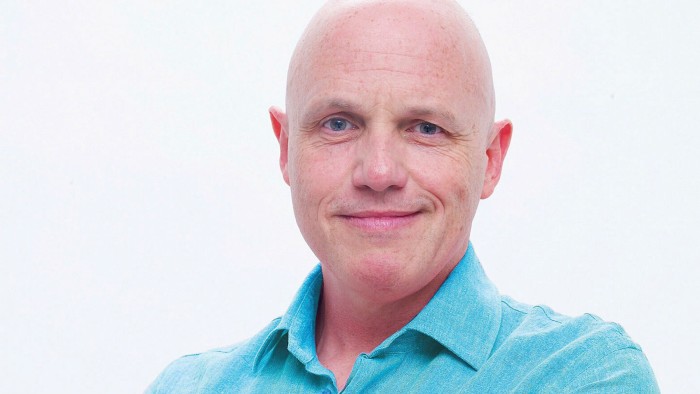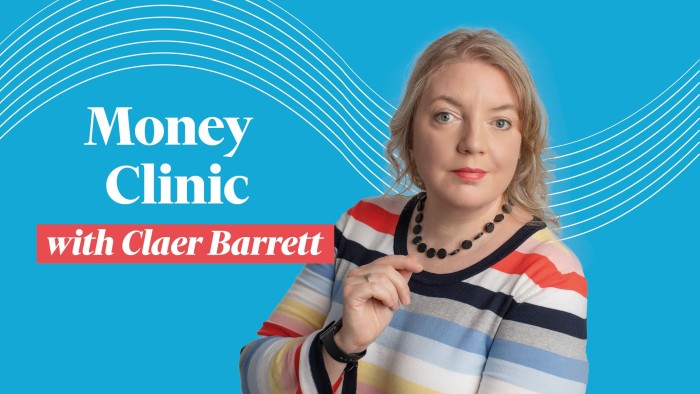Investment masterclass: Interview with the Naked Trader

Simply sign up to the Equities myFT Digest -- delivered directly to your inbox.
Day trading has soared in popularity during the pandemic, but experienced stockpicker Robbie Burns says investors need to take a longer-term approach if they want to succeed.
Better known as the Naked Trader, 59-year-old Robbie has documented all of his trades — long and short, profitable and lossmaking — on his eponymous website for almost 20 years.
However, he has been alarmed by the number of younger investors getting into day trading during the pandemic.
“It’s a bit like you’re going to a casino every day and expect over time to win money. The casino will take your chips,” says Robbie, interviewed by presenter Claer Barrett on the Money Clinic podcast this week. “Have the patience to hold something for a while and let your money build.”
In the investment masterclass episode, Robbie outlines his alternative approach, sharing tips about how he uses the combination of a stock and shares Isa and a spread betting account to go long and short on different shares and asset classes.
Starting with £7,000 in 1998, he has since made a cool £3m of tax-free profits trading from a laptop on his kitchen table, and has written several best-selling investment books.
FT podcast: Why the Naked Trader plays the long game

Investment Masterclass with investor, blogger and author Robbie Burns AKA the Naked Trader. Listen here
In the podcast interview, Robbie takes listeners through his step-by-step approach to evaluating shares, and how he goes about researching his investment ideas. He also speaks frankly about his biggest investment mistakes — he once lost £8,000 trading shares in Coffee Republic — and how he has learned from these.
“If a share starts to lose more than 5 or 10 per cent, I literally just sell it,” he says.
Before he even buys a share, he considers what his likely exit plan will be, and sets up a “stop loss” to limit the potential downside.
“I would say the reason I’ve made my millions is from having a few really big winners and then having taken lots of very small losses,” he says.
“What I find most people do is they keep sitting on these losing shares and the shares keep on going down and down; they never sell them and they end up losing a lot of money. Whereas if you have your stop loss, the loss is automatically taken and all the emotion is taken out of it.”
Although all of Robbie’s trades are listed on his blog, he stresses that investors should do their own research rather than blindly follow the investment choices of others.
Nevertheless, the educational insights in Robbie’s blog and Naked Money podcast have garnered him a cult following in the investment world. In a recent FT podcast survey, he was voted one of the investors Money Clinic listeners most wanted to hear interviewed.
However, Robbie does not fit the trader stereotype. He doesn’t own a mobile phone, shuns social media and has never traded “meme stocks”, such as GameStop.
He is also shorting bitcoin. “My view of crypto is it’s a kind of Ponzi scheme and it’s going to horribly crash,” he says. “Other people will disagree with me and I could be wrong. Then again, I’ve got my stop loss.”
Rather than chasing quick profits, he recommends a slower, more research-driven approach — and emphasises that anyone can do this if they are prepared to put in a bit of effort.
“If you’re going out there chasing money, it’s just going to run away from you. What you really want to do is let the money come in slowly. I started with seven grand in 1998 with my very first trades, and it’s taken 20 years and a lot of patience to get where I am today.”
The average length of time Robbie will hold a stock in his portfolio is six months, although he does have some long-term holdings that he keeps for the dividend income.
“I’m getting about 80 or 90 grand in cash a year, just going in from nothing, just the dividends,” he says.
Because he holds his shares within a stocks and shares Isa, next year’s increases to the UK’s dividend tax will not be an issue for him, and neither will capital gains tax.
“If I hadn’t put my money in an Isa, I’d have probably paid hundreds of thousands of pounds in tax. So it’s lovely and you can take all the money out whenever you want it all, tax free.”
To listen to the episode, click the link above or search for “money clinic” wherever you get your podcasts.
If you would like to chat to Claer on a future episode, please email a brief description of your query to money@ft.com or follow her on Instagram @Claerb
Letter in response to this article:
Investment pundit misses the point on value swings / From David Coombs, Corby, Northamptonshire, UK
Comments